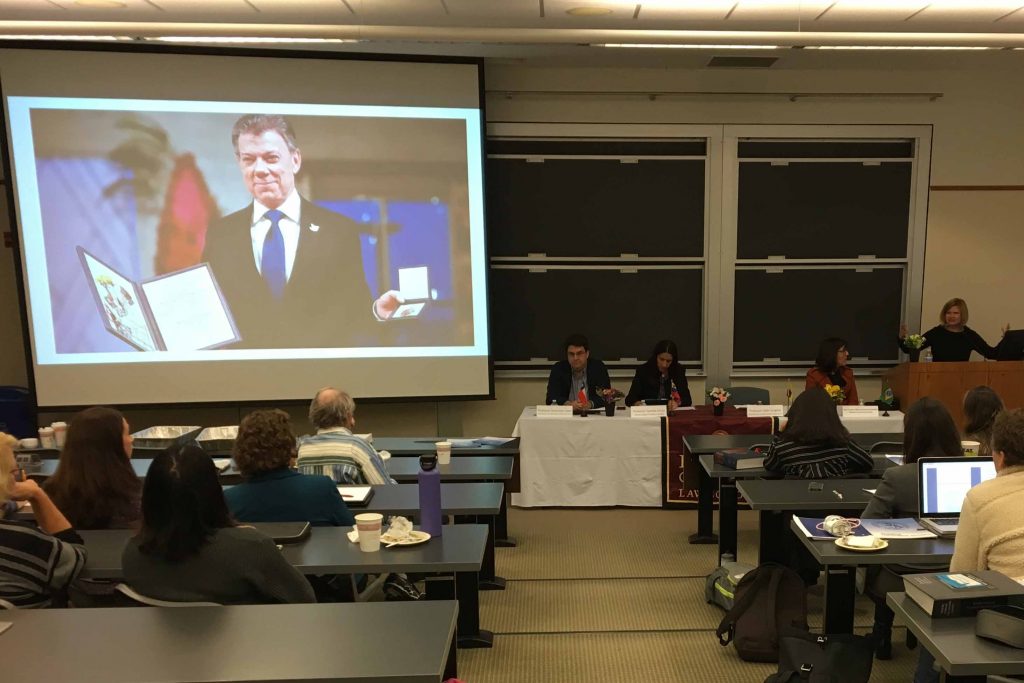The role of the executive holds a precarious place in conventional thought regarding free democracies. On the one hand, decisive executive action is necessary for conscientious enforcement of legislation, and the individual figure of the executive can serve as an effective rallying point for public sentiment, both domestically and abroad. On the other hand, a strong executive position is rightly viewed with suspicion, as fewer checks and balances often beget tyranny, cronyism, and the undermining of the rule of law. Panelists discussed such topics and more in an event at BC Law on October 17, “Executive Power in Latin America.”
Four scholars—Sebastian Lopez of Chile, Ildiko Szegedy of Colombia, Daniela Urosa of Venezuela, and Ana Cristina Melo de Pontes Botelho of Brazil—reflected on the experiences and current issues facing executive leadership and credibility in their nations.
“If men were angels, no government would be necessary. If angels were to govern men, neither external nor internal controls on government would be necessary.”—James Madison, Federalist 51
Botelho presented an optimistic view of what is going on in Brazil. “Recent experience has demonstrated a significant improvement in the rule of law,” she said regarding the recent indictments in Brazil of former president Luiz Inácio Lula da Silva and the impeachment of President Dilma Rousseff.
“Despite decades of cronyism in the presidency, major executive figures are finally being held accountable by the other branches of government, as well as the people in general. The process of rebuilding trust in the presidency can begin,” she said.
The outlook in the countries of the other speakers, however, is not as good.
In her remarks about Venezuela, for example, Urosa, echoed some of her colleagues’ concerns.
People in her country have endured a protracted economic disaster and are currently facing a constitutional crisis, she said.
“The situation is truly unprecedented. The unilateral actions of the president, as well as the viciousness with which his security forces have opposed protests, pose an existential threat not only to the Constitution of Venezuela, but also the existence of democracy itself,” she explained. “Firm international pressure and mediation may be necessary.”
The panel was a presentation of the Graduate Legal Education and International Program at BC Law.


